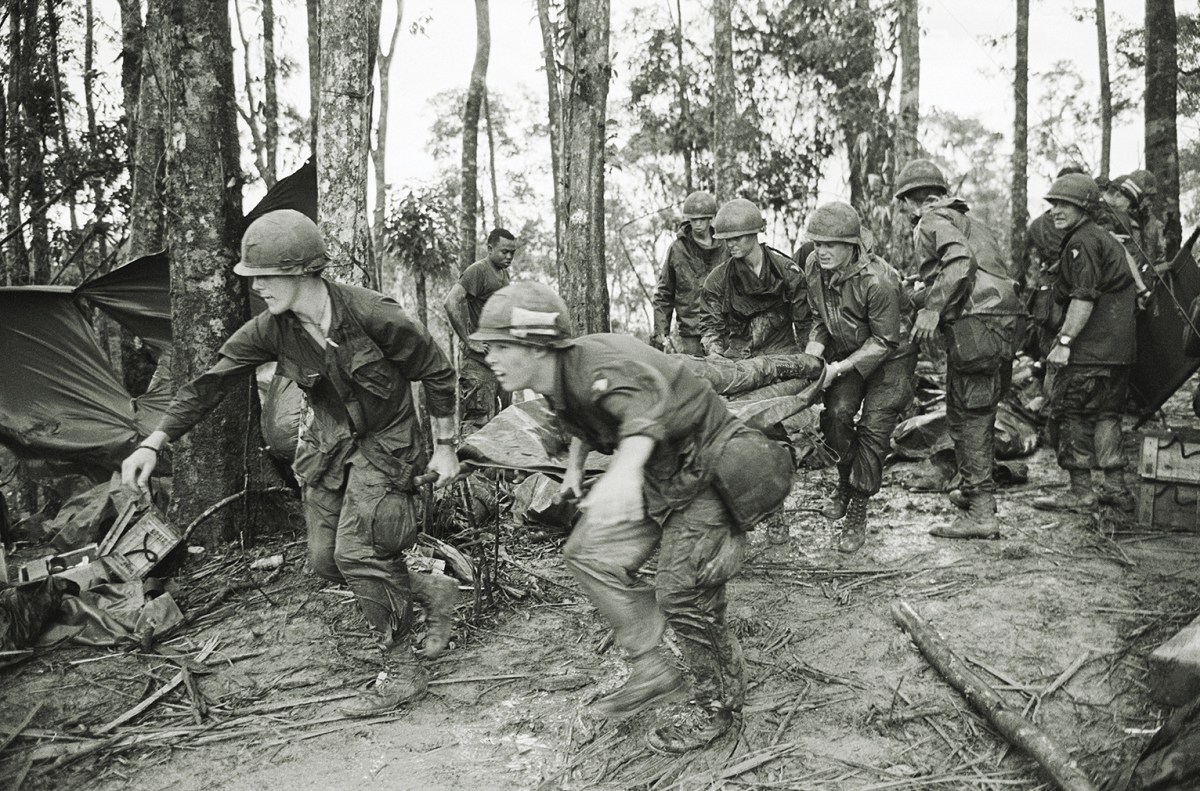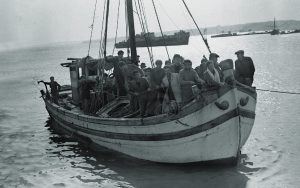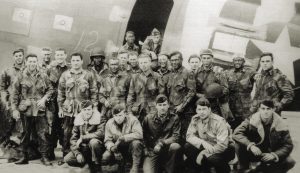In the spring of 1969, I arrived in Vietnam as a sergeant in the 101st Airborne Division (Airmobile) after completing a small unit leadership training program at Fort Benning, Georgia. Even though I was an untested infantry squad leader, I was put in charge of a dozen men who had been in-country four, five or six months. Since my men had previous combat experience and I had none, the pressure I faced when taking control was enormous.
I did not have to wait long for the opportunity to prove myself because my company had just been ordered to take part in the famous battle for Hamburger Hill, May 10-20 in the A Shau Valley of northern South Vietnam.
The Peaches
Upon entering the assault staging area, we were instructed to leave all nonessential gear behind and to only take weapons, ammunition and a single canteen of water. However, I decided to bring along a small C-ration can of sliced peaches in case I got hungry along the way.

As we slowly moved into our assault position, the formidable jungle terrain and thick vegetation caused significant delays. Other U.S. military units ran into the same problem, causing the assault to be postponed until the next day. That meant we had to spend the night at the base of the contested mountain.
No Food For You….
When morning arrived, everyone was hungry. It had been nearly 24 hours since we last ate. Assuming my fellow soldiers had also brought food, I casually opened my can of peaches and started eating. Immediately, some of the guys began staring at me. They all wanted peaches. Since the tiny can could not realistically feed a dozen men, I decided to get it over with and quickly ate the rest of the fruit.
No one said anything, but their cold stares confirmed that I had made a mistake. Instead of acting like a leader, I had disappointed them by only thinking of myself.
A short time later, we were given the order to assault the mountain. The moment we moved into the battle area we immediately came under heavy fire. As enemy bullets pinned down our skirmish line, I looked for a way to escape. To my left was a small ridge that had enough vegetation to provide cover.
No Support from the Men
I immediately leapt to my feet and ran to the ridge yelling to my squad: “Follow me! We’re going up this way!” I charged up that ridge like a madman, pushing branches aside, jumping over abandoned enemy positions and ignoring bullets nipping at my feet. When I reached the crest of the hill, I realized it was the perfect location to set up a defensive position.
But when I turned around to inform my squad, I was alone! They had let me run up the hill by myself.
About 30 minutes later the fighting subsided. My guys finally made their way to my position. As they gathered, I scolded them: “Why the hell didn’t you guys follow me?! That ridge had plenty of cover! If we all came up together, we might’ve made a difference!”

No one answered. The men sheepishly looked at each other, knowing full well that they should never have let a fellow soldier charge the enemy alone.
Then one of the men broke the silence. “We didn’t follow you because you didn’t share your peaches.”
Everyone burst out laughing, including me.
I learned an important lesson that day. In a dangerous place like a combat zone, refusing to share something as simple as peaches can get a guy killed. To prevent that from happening again, I needed to find a way to atone for my selfishness.
Making Up For It
Before long, I found the solution. One of the most welcome diversions from the Vietnam War came in “care packages” from home filled with cookies, fruitcakes, seasonings, powdered juices and a variety of canned goods. One package from my mother contained a 7-ounce can of apple juice from a New Hampshire cannery. It was the first real thirst quencher I had in over two months. It was so refreshing that I wrote a thank-you letter to the company.
In the letter, I briefly described how miserable infantry life in Vietnam was, explaining how the juice was such a welcome change from drinking water out of rice paddies and rubber bladders. I also wrote that I wanted to purchase a case of the apple juice to share with my squad.
About two weeks later, I received a complimentary carton of 20 4-ounce cans with a letter from the cannery stating that the gift was its way of showing support for the troops. What a fantastic surprise!
Infantrymen often feel unappreciated in wartime, so something as simple as a free can of apple juice was a real treat. It not only revitalized our taste buds but also restored our long-lost faith in the folks back home.
Then I got an idea. If I write the same kind of letter to other food suppliers, maybe we would be able to get more free items. I secretly sifted through discarded containers from other soldiers’ care packages for additional supplier addresses and began sending requests at two-week intervals.
‘Operator’
It did not take long for the goodies to start rolling in. In the coming months I received large quantities of peanuts, pretzels, fruit nectar, canned berries, sardines, steak sauce and more. As a joke, I even asked a tobacco distributor for cigar prices, and I was sent a free box. My letter writing campaign was working so well that I had to maintain a chart to keep from contacting a company a second time.
GET HISTORY’S GREATEST TALES—RIGHT IN YOUR INBOX
Subscribe to our HistoryNet Now! newsletter for the best of the past, delivered every Wednesday.
My squad members began calling me “Operator” because I reminded them of the “Sgt. J.J. Sefton” character portrayed by William Holden (who won a best actor Oscar for the role) in the 1953 movie Stalag 17.
However, unlike Sefton, who as a prisoner of war was somehow able to live comfortably while his POW comrades suffered, I shared everything that came my way to help make the situation a little more bearable for all of us.
Naturally, my squad was curious about how I obtained cases of hard-to-get provisions. I simply told them I had an uncle who worked in a food distribution warehouse. I was afraid that if the guys knew the truth they might try the same thing and the suppliers would catch on and stop sending the freebies!
Later, I wondered if I had taken advantage of some very generous people, but I quickly dismissed such thoughts. The combat infantryman suffered under so many unforgiving conditions that we were basically at the bottom of the food chain. One of a soldier’s biggest fears is to be forgotten. I should not have had to go to such trouble to remind so many people that there was a war going on. However, in doing so, the free food was a huge benefit because it not only lifted our spirits but also taught me a valuable lesson in sharing.
Arthur Wiknik Jr. is the author of Nam Sense: Surviving Vietnam with the 101st Airborne Division. Wiknik has appeared on the History Channel show Vietnam in HD and was a featured guest on the Military Channel (now American Heroes Channel) show An Officer and a Movie. He lives in Higganum, Connecticut.






